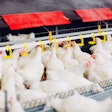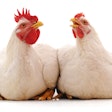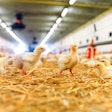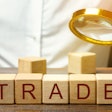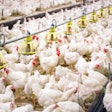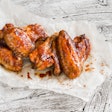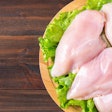
For the latest quarter, Scandi Standard is reporting a 23% year-on-year improvement in operating income to 139 million krona (SEK; US$12.4 million). This relates to Earnings Before Interest and Taxes (EBIT) for the period July to September 2023. This increase helped drive up the EBIT margin to 4.2% from 3.5% in the corresponding period of 2022.
While net sales for the period were 3% higher in value at almost SEK3.31 billion, the group reports a decline of 2% when these are expressed at constant exchange rates.
The company reports broadly similar trends in its fiscal results for the year to date.
Net sales for the January-September period were 11% higher year-on-year at just over SEK10.0 billion, although this equated to an increase of just 6% on the basis of constant exchange rates. Compared with the previous year, the company reports an 84% increase in EBIT to SEK352 million. This raised the EBIT margin from 2.1% for the first nine months of 2022 to 3.5% for the three quarters just ended.
Commenting on these results, Scandi Standard’s managing director and CEO Jonas Tunestål highlighted the restoration of the margin to historical levels for the latest quarter. Following a challenging period for food businesses, he attributed this improvement to changes in some operational and financial measures.
“Now standing on a stable foundation, we are moving focus to our future growth journey and long-term value creation,” he added.
Looking ahead, Tunestål said that Scandi Standard was now prioritizing strategies and processes that will bring about long-term value creation.
While a broad direction for the future business was announced by the company last month, Tunestål said that more detail will be disclosed at the end of November.
During the last quarter, the CEO confirmed that the group continued to integrate sustainability into its strategy and operations.
Performance by business segment
For the third quarter, a 7% year-on-year increase in sales was achieved by Scandi Standard’s Ready-to-Cook (RTC) business to more than SEK2.43 billion. Driven by these higher sales, as well as lower input costs and improved profitability of the Danish operation, EBIT was reported at SEK105 million — a threefold increase from the comparative period.
According to Tunestål, earnings benefited for this business from non-comparable items linked to the group’s recent divestment of its majority stake in Rokkedahl Food Aps announced earlier this year.
For the coming months, the CEO stressed that the present world economic situation leads to uncertainty about future prospects for its business.
In contrast, there was an 8% drop in net sales by the group’s Ready-to-Eat (RTE) operations in the latest quarter to SEK734 million. Segment EBIT for this period was down to less than half of the previous year’s level at SEK32 million. This arose from a reduction in capacity utilization at the facility in Farre, Denmark, as a contract with a major customer was terminated.
While the repercussions are expected to continue for the next few months, Tunestål stated subsequent improvements for RTE are expected.
For the third segment — Other/Ingredient — operating income was down 50% to SEK11 million for the third quarter.
This business focuses on adding value to the whole bird, and the recent adverse developments in performance are attributed to a normalization of markets following previously highly favorable conditions.
More on Scandi Standard
Earlier this month, the company announced the appointment of a new chief operating officer.
With annual slaughterings of more than 177.5 million birds, Scandi Standard is easily among the largest poultry meat producers in Europe, according to WATTPoultry.com’s Top Poultry Companies survey.
On its own web site, Scandi Standard reports that is a leading producer of chicken-based food products in the Nordic region and the Republic of Ireland. Under brand names Kronfågel, Danpo, Den Stolte Hane, Manor Farm, and Naapurin Maalaiskana, the firm markets and sells RTE, chilled, and frozen products. In Norway, it also produces and sells table eggs.
With a workforce of around 3,200, the group had sales of more than SEK12 billion in the last full financial year.








